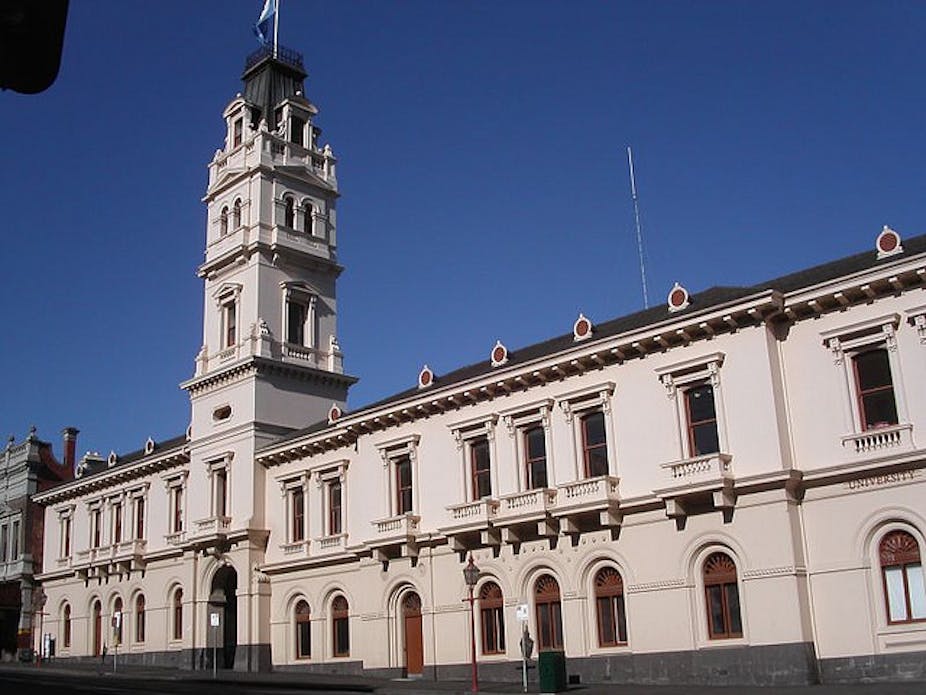Most urban Australians don’t tend to think about regional Australia, and when they do it’s often hazy notions of a place blighted by natural disasters, economic gloom and declining population.
But for one-third of the population who live in rural and regional Australia – a proportion that is actually increasing – this is far from the whole picture. The common portrayal may be one of despair and destruction, but the people actually affected are far more likely to be positive and resilient.
The general misconceptions about regional areas also affect the way some people view regional universities. In some circles, it’s often thought that the best and brightest potential students should naturally aspire to attend a large, long-established university in a capital city.
But this is just one of many misperceptions about regional universities and the role they play. We need to better recognise the contribution regional universities make to the economy, their communities as well as learning and research.
A matter of perception
It’s clear that regional universities build up educational opportunities and human capital for regional Australia. But they also build much the same for the nation as a whole and this is only increasing.
At its heart, the effort to strengthen Australia’s regional universities is all about giving a “fair go” for the areas they serve. After all, these areas generate two-thirds of Australia’s wealth while lagging behind on many measures of social progress.
There are gaps in educational outcomes in rural and regional areas with Year 12 completion rates about 20% lower than in the capitals, and 12% of adults in regional Australia having a degree compared to 27% in the capitals.
This shows there is more to be done, but more support for regional universities is not an act of pork barrelling or charity and the institutions need to continue to earn their place by undertaking quality teaching and research. They are doing this, with innovative pedagogy and a real focus on targeted, strategic research that provides tangible benefits for the regions, nationally and internationally.
One of the misconceptions sometimes held about regional universities is that they are somehow a lesser option for under-performing regional school leavers unable or unwilling to study at a capital city institution, but the actual statistics paint a different picture.
For example, at the University of Ballarat the average age of students is 26 and 20% studying with us are from capital cities. This cohort of older, wiser students is actually looking for a different type of university experience and lifestyle and its members are prepared to study at regional universities to find what they want.
A fair go for the regions
Luckily for regional universities, it seems that the long-held belief that Australians support a fair go holds true. The Australian Bureau of Statistics last month launched its latest Measures of Australian Progress report which tracks our aspirations as a nation.
During the launch the Australian Statistician, Brian Pink, summarised some of its findings, saying, “we found that Australians feel that having equal opportunity or a fair go, is an essential element for progress. They also want an economy that meets Australia’s needs today, tomorrow and into the future. People feel that the non-material aspects of life such as recreation, sport, popular culture and the arts are also important for progress.”
They also found that Australians think having a say in the decision making that affects their lives, and having institutions that are accountable for their decisions, is crucial.
As responsive, nimble institutions deeply embedded in their communities, regional universities currently play leading roles in advancing every single one of these key measures of progress and aspiration.
Regional cooperation
The Bradley Review of Higher Education in 2008 highlighted inadequacies in provision of higher education across regional and remote Australia. The institutions belonging to the Regional Universities Network (RUN) are now actively engaged in an agenda to address many of these inadequacies.
This is why RUN members signed a formal Accord last month allowing wide scope for collaboration between our universities in a range of areas.
The Accord – which is the first of its kind between regional universities – will benefit our students, staff and communities. It allows us to address the relevant issues – thin markets, the need for comprehensive offerings in teaching and learning, the need to collaborate in research, and the opportunity to boost the sustainability and capacity of our institutions in regional Australia.
It also covers such areas as joint appointments, multi-badged degrees, credit transfer arrangements for students, internal staff vacancies and professional development activities, and the consolidation of appropriate support functions.
We all want to be part of building a clever country, but this ambition also requires clever regions. And the basic Australia-wide aspiration for a fair go demands that regions have high-quality educational opportunities in universities that offer agility, provide responsiveness and are deeply engaged with their communities.

